
The future of money is no longer confined to spreadsheets and silicon — it is embedded in real-time, personalised and radically inclusive ecosystems
by SHAUQI WAHAB
BANGKOK played host to a new wave of financial, technological and cultural innovation as Money20/20 Asia 2025 opened its doors to an ambitious crowd of fintech (financial technology) leaders, legacy players and digital pioneers.
Three stages with different themes were prepared for participants and fintech enthusiasts to explore the intersection of artificial intelligence (AI) and footwear, to the rise of biometric payment systems and next-generation fraud prevention.
The three-day event, held from April 22 to 24, signalled that the future of money is no longer confined to spreadsheets and silicon — it is embedded in real-time, personalised and radically inclusive ecosystems.
Varying from interesting forums themed on fintech, banking and AI — the event offers room for networking as well as providing interactive games and relaxation, such as the Tuk Shop and the Harmony Hub for guests to unwind in a relaxing personal massage session.
Reebok International Ltd founder Joe Foster and Syntilay CEO Ben Weiss discussed innovation, AI and the future of footwear.
They opened up about their collaborative venture that merges heritage craftsmanship with futuristic tech — AI-driven, 3D-printed footwear designed for content creators.
Foster reflected on his journey with Reebok, acknowledging the many mistakes made along the way, but stressing the value of learning and adapting.
Meanwhile, Weiss introduced the vision behind the start-up: Tapping into an untapped “white space” in the footwear market by giving content creators the same signature shoe opportunities traditionally reserved for athletes.
“These people are just as influential,” he commented, adding that content creators have massive global fanbases, yet are often overlooked by the sneaker industry.
To overcome traditional barriers like expensive design, moulding costs and inventory demands, Weiss and his team turned to AI and 3D printing.
Partnering German-based Zellerfeld, a factory that recently printed Nike Inc’s first fully 3D-printed shoe, they slashed the design-to-launch cycle from 18 months to just three.
In such a short time, the Explore Slide, the world’s first commercially available AI-designed, fully 3D-printed slide was born.
Foster admitted he was initially surprised by the technological leap.
“When I stepped back from Reebok, we did not even have smartphones, but now, AI and 3D printing? It is a whole different world,” he said.
Weiss also pointed out the importance of practical innovation and user-friendly technology, comparing their foot-scanning system — an easy, two-minute process using a phone camera — to what fintech could learn from their model: Automation, rapid iteration and simplicity at scale.

Weiss (left) with Foster (centre) talk about their collaborative venture that merges heritage craftsmanship with futuristic tech — AI-driven, 3D-printed footwear designed for content creators
Maybank Rethinks Risk, Embraces New Partnerships
Malayan Banking Bhd’s (Maybank) group chief strategy and transformation officer Chan Cheong Siew stressed the urgent need for legacy banks to rethink traditional business models, particularly in how they serve the small and medium enterprise (SME) segment.
He highlighted that financial institutions still largely assess micro SMEs using conventional methods, requiring applications, credit scoring — even when leveraging alternative data — and fixed-monthly collections.
While technology has improved efficiency in these processes, he believes banks must move beyond operational improvements.
Chan introduced the concept of “invisible banking”, where credit is made available to SMEs, such as restaurants, in real time, based on their live cashflow data.
“We must move beyond operational improvements. Legacy models can no longer serve the new economy,” he said during a panel discussion entitled: “Legacy Banks in the New Economy: Innovation, Agility and Customer-centric Transformation”.
Instead of requiring an application and monthly repayment, banks could dynamically assess performance and adjust credit limits daily, with collections based on a percentage of daily income.
However, Chan noted that achieving this vision requires partnerships beyond the banking ecosystem, particularly with point-of-sale (POS) system providers, as banks traditionally do not operate in POS businesses.
He acknowledged that such partnerships could involve revenue sharing, but stressed that the goal remains the same — which is helping customers solve their problems more effectively.
On partnerships, he mentioned that Maybank does not view fintechs and non-bank players as competitors but as strategic allies. He outlined four key objectives for partnerships, primarily to gain access to new customer segments, particularly underserved groups like micro SMEs.
Chan also mentioned access to new capabilities, including technology, product innovation and new distribution channels.
Besides that, access to talent is also important, especially as rapid developments in AI and digital transformation make it challenging for traditional banks to attract and retain certain expertise internally.
Lastly, he advocated for exploration of new business models — by supporting early-stage innovations and gaining early access to new growth opportunities.
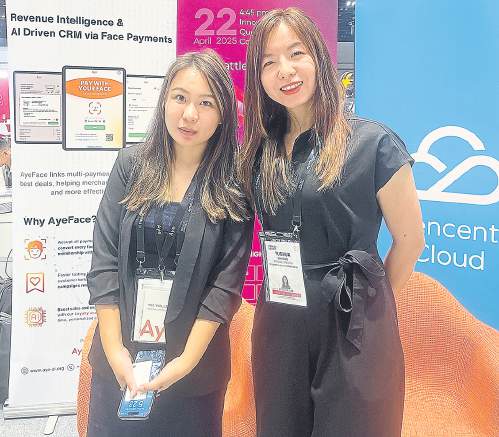
Yee (left) and Chaang present a compelling look into the future of biometric payments at Money2020 Asia 2025
Facial, Palm Biometrics Take Centre Stage
Malaysian company AyeFace showcased its product to the fintech enthusiasts during the event.
CEO and founder Yee Yun Lim and Tencent’s cloud channel director Chaang Yunhua presented a compelling look into the future of biometric payments.
Their live demonstration and discussion highlighted the rise of facial and palm recognition as seamless, secure methods for digital transactions — ushering in a new era where the human body itself becomes the wallet.
Yee demonstrated AyeFace’s facial recognition payment system in real time, registering a volunteer’s face to her own wallet in just 10 seconds.
The system, she explained, links biometric
data to various payment platforms such as Google Pay, Apple Pay, Visa, Mastercard, GrabPay and WeChat Pay.
“That is how smooth and how fast it is. You can do it yourself without us teaching you how to do it,” she said.
Meanwhile, Chaang introduced the company’s palm recognition technology, which has been rolled out across major Chinese cities in partnership with WeChat Pay.
“Even twins might share similar features in their face, but their palm is totally different,” she gave as an example.
Stressing the security advantages of palm biometrics, she added that the system has maintained a perfect accuracy rate since its launch in Shenzhen, Beijing and Shanghai two years ago.
Yee also highlighted the built-in anti-spoofing measures.
“The light was actually flashing to reflect the depth of your face. That is how we know you are a real person,” she said.
She also laid out AyeFace’s business model, which includes a freemium structure for merchants.
A basic plan offers standard payment functions, while higher-tier plans enable e-commerce integration, loyalty programmes and AI-driven sales tools that personalise offers and pricing dynamically.
“With the flexibility of dynamic pricing and recommendation, that is how we deliver hyper-personalisation to your end customer,” Yee said.
On expansion plans, Yee confirmed that
Malaysia, Singapore and the Philippines are priority markets, with discussions already underway with local banks and merchant acquirers.
AyeFace’s ultimate goal is to be an authentication and identification partner, by having a unique user ID for all merchants and all users.
NIUM Doubles Down on Real-time
NIUM, a player in cross-border payments, reinforced its mission to become the foundational infrastructure for real-time global transactions.
NIUM’s executive VP and head of APAC sales Yogesh Sangle shared insights on the company’s growth, its product innovations and its vision for the future in the increasingly competitive fintech space.
NIUM’s international footprint is wide, with hubs in San Francisco, London and Singapore. “Our mission is to build the first global infrastructure for real-time payments. This is something we believe in, and we are on the path to accomplishing that,” he said.
At the heart of NIUM’s strategy is its vast global payment network, which currently spans 190 countries, with real-time payments to over 100 destinations.
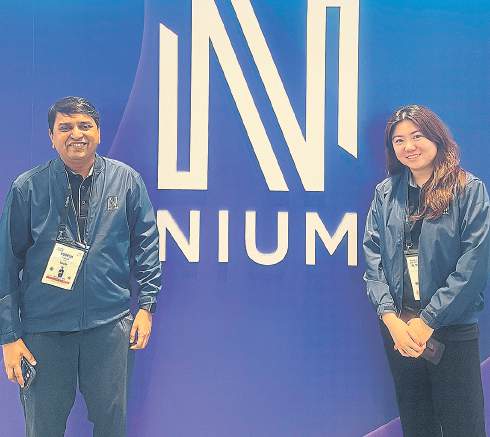
Yogesh (left) with director and head of marketing APAC Alyssa Jane Tan at Money20/20 Asia 2025 where NIUM introduces its 2 key innovations: NIUM Verify and Swift Connect
This infrastructure enables companies to execute international transactions swiftly and cost-effectively, a key differentiator in today’s fragmented regulatory environment, especially across Asia.
Money20/20 Asia, held close to NIUM’s regional headquarters, is not just a showcase opportunity — but also a strategic touchpoint for customer and partner engagement.
Besides, Yogesh said it gave them an opportunity to find new prospects. “It is a great way to make our brand presence known,” he added.
A major highlight at the event was NIUM’s introduction of two key innovations: NIUM Verify and Swift Connect.
NIUM Verify allows users to confirm recipient account details before a transaction is completed, addressing a long-standing concern among customers.
“One of the biggest fears that customers have is that the money will go into the wrong account. With Verify, it allows you to validate the account before even the money goes out,” he said.
Meanwhile, Swift Connect enables banks to plug directly into NIUM’s network using existing SWIFT infrastructure, avoiding lengthy integration processes.
According to Yogesh, this flexibility is especially appealing to traditional financial institutions looking to offer real-time payments without overhauling legacy systems.
NIUM also used the event to stress its regulatory credibility. The firm has secured licences in multiple Asian markets, including Singapore, Malaysia, Hong Kong and Japan.
Its proactive approach to compliance and strong relationships with central banks set it apart from less-prepared fintech peers.
“A lot of players in the market do not want a licence until the regulator asks them, but in our case, we have proactively looked at licences,” he said.
As AI and automation continue to shape the fintech sector, NIUM is exploring their applications across operations, coding and marketing.
While still in the early stages of AI integration, the company is already seeing efficiency gains and expects more transformative use cases in the near future. Ultimately, NIUM’s roadmap remains customer-centric.
“Everything that we build is around solving a customer need,” Yogesh said.
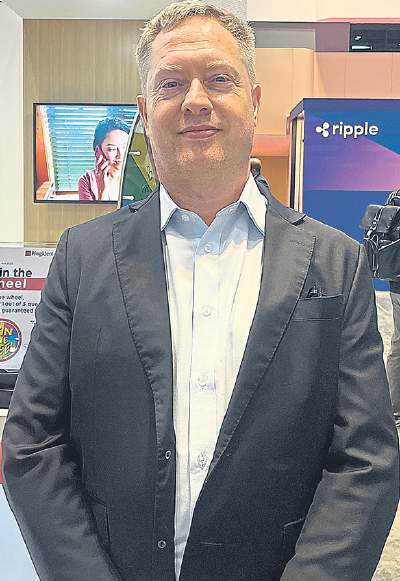
Fantenberg confirms that deepfakes are currently the biggest identity-related security threat
Ping Identity Sees Deepfake as Biggest Threat
At Money20/20 Asia 2025, Ping Identity’s director of product and solution marketing Johan Fantenberg shared critical insights on the growing complexity of identity security in the financial services and fintech landscape.
With the rise of embedded finance, digital wallets, and open banking, Ping Identity’s mission is to ensure that every digital transaction is trusted without compromising user experience.
Founded in 2002, Ping Identity has evolved into a global player in the identity security space, but still operates with a fast-paced start-up mindset.
The company primarily works with industries like banking and fintech to secure onboarding, authentication and ongoing digital interactions.
A major concern raised by Fantenberg is the increasing sophistication of digital fraud, particularly through the use of deepfakes.
He confirmed that deepfakes are currently the biggest identity-related security threat.
“They are so hard to discern from a real person because if you can convince someone to transfer money or share some information you should not be sharing, and it is convincing on a video call or a voice call, then it is really hard to protect against,” he elaborated.
To combat such threats, Ping Identity is investing heavily in AI-driven fraud detection and privacy-preserving technologies such as digital identity wallets and verifiable credentials.
These solutions enable customers to prove their identity or attributes without repeatedly undergoing time-consuming KYC (know your customer) checks.
He also highlighted the inevitability of passwordless authentication as a standard, not an innovation.
“Everybody should do it. It is no longer innovation, it is just business as usual,” he added.
Technologies like passkeys and the work of the FIDO Alliance should be used by the companies.
While no major product announcements were made during the event, Fantenberg assured that Ping Identity is continuously evolving its capabilities in line with global regulatory shifts and technological trends.
As financial crime grows more complex, Ping Identity’s solutions aim to stay ahead of the curve, empowering institutions to protect their customers’ digital identities while offering a seamless experience.
SHIELD Leverages Device-first Approach
SHIELD, a global fraud prevention company with headquarters in Singapore and the US, is pushing the boundaries of fraud intelligence through its unique device-first strategy.
Originally founded in 2008 as a chargeback payments protection provider, SHIELD has since pivoted to focus on device-based fraud detection, marking a strategic shift that aligns with modern cybersecurity challenges.
SHIELD associate product marketing manager Teri Chong shared that SHIELD’s technology tackles fraud at its root — the device level — before malicious activity infiltrates payment systems or identity verification processes.

Chong says SHIELD’s technology tackles fraud at its root before malicious activity infiltrates payment systems or identity verification processes
This holistic, proactive approach enables businesses to protect their ecosystems more effectively and sustainably.
“What we want to prove to people is — you can leverage fraud intelligence and fraud prevention as a growth centre, growth enabler — and you can actually gain back that ROI (return on investment),” she said.
Unlike traditional vendors often viewed as cost centres, SHIELD positions its solution as a strategic asset that not only prevents fraud, but also drives business growth.
Its persistent device identifiers and expansive global coverage enable real-time pattern recognition across continents, allowing businesses in one region to benefit from threat intelligence gathered in another.
With operations across six continents, SHIELD is rapidly expanding in regions such as Latin America, the Middle East and Central Asia, while maintaining a strong foothold in the APAC market.
As part of its participation at Money20/20, the company is exploring new partnerships to further deepen its global network and aims to help more companies achieve sustainable growth in the next three to five years.
InDrive Expands Via InDrive Money
There were several companies who were already affiliated with one another at the event.
InDrive, widely known for its ride-hailing service that allows passengers to negotiate fares, is making strategic moves into the fintech space through its venture, InDrive Money.
Leading this initiative is InDrive Money’s head of business and product Alina Zavorokhina who revealed the platform’s mission to offer fair financial services to underserved gig workers.
“ InDrive Money is our response to the financial exclusion that many gig workers face,” she said.
She lamented the rider’s fates as traditional banks often do not recognise their income, making it hard for them to access loans.
The company has already rolled out its revenue-based financing model in several countries, including Mexico, Colombia, Peru and recently, Indonesia.
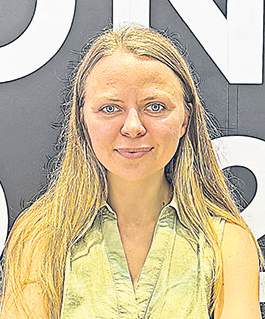
Zavorokhina reveals InDrive Money’s mission to offer fair financial services to underserved gig workers
The model helps drivers repay loans directly through their rides, reducing financial stress and helping them build a healthy credit history.
A key innovation on the horizon is embedded peer-to-peer (P2P) payments within the app. This will allow passengers to pay drivers instantly — using local digital payment methods, bypassing the need for InDrive to hold or process funds.
“Drivers want to get money right after the ride. So, we are implementing direct P2P payments to ensure instant payouts,” she said.
For safety against contemporary issues such as Deepfake and other AI tools, InDrive is using SHIELD’s services to enhance its app’s cybersecurity capacities.
As InDrive explores potential expansion of its fintech services into Malaysia, regulatory compliance and driver demand will be crucial factors.
The company’s future also includes launching super app features like food delivery, with fintech acting as the core infrastructure to unify services and enhance user experience.
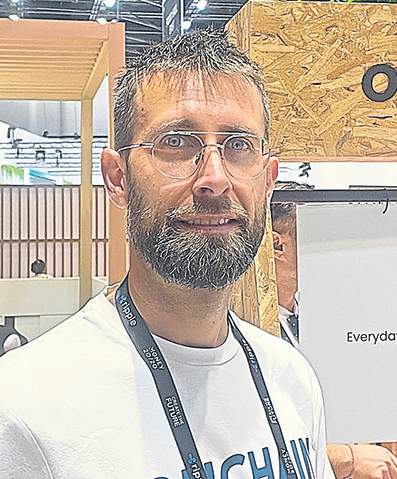
Dominique believes Asia will remain the world’s fastest-growing region for decentralised finance adoption
OnChain Labs Eyes Decentralised Payment Solution
Start-up company OnChain Labs, a blockchain-focused payments company, is preparing to launch its flagship product, OnChain Ramp, within the next two weeks.
The tool aims to disrupt traditional centralised crypto exchanges by enabling token-based projects to sell their tokens directly to users without intermediaries.
Founder and CEO Jason Dominique said right now, it is incredibly hard for people to buy tokens that exist in decentralised finance.
“We built a way for them to be acquired directly by removing the middlemen,” he said. The company, which has spent four years developing its proprietary and now-patented OnChain Payment Network, operates on a SaaS model.
It allows crypto projects to integrate the service and reach global audiences instantly, skipping costly exchange listings.
Unveiled at Money20/20 Asia and set for an official debut at Token2049 in Dubai, the platform has received enthusiastic feedback from token projects.
Dominique believes Asia will remain the world’s fastest-growing region for decentralised finance adoption, driven by underdeveloped traditional banking infrastructure and mobile-first users.
With full KYC and AML (anti-money laundering) compliance built into its framework, OnChain Labs is positioning itself — not just as a payment company — but as a key enabler of the decentralised future.
- This article first appeared in The Malaysian Reserve weekly print edition
The post Money20/20 Asia 2025 reimagines a future of finance beyond balance sheets appeared first on The Malaysian Reserve.
